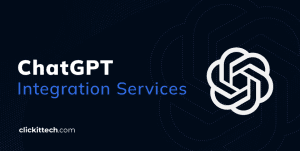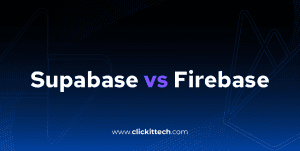Why Migrate your OVH Server to AWS Cloud?
AWS provides a large set of infrastructure services like computing power, hosting options, networks, and databases; all these available in just a few seconds and paying only what is used. OVH offers a hosting service at an established cost with a variation on it depending on the hired service. Also, AWS has a better technical support experience, which answers quickly and clarifies every doubt about the services with a well-structured documentation. Do not wait and migrate OVH to AWS.
But if you already have your WordPress in AWS and want to optimize it, enter our blog here we tell you how to do it.
Table of contents
- Why Migrate your OVH Server to AWS Cloud?
- How to start using AWS?
- What was done…
- The obtained benefits are:
- What Problems does ClickIT solve?
How to start using AWS?
A good way to get started in Amazon is with EC2, a technology that provides flexible hosting services. It allows you to choose between several instance types, operating systems and software packages. EC2 is designed to be used with other services of AWS that works with Simple Storage Service (S3), Relational Database Service (RDS), Amazon SimpleDB and Amazon Simple Queue Service.
Without worrying about the security, it is designed to let you implement your own virtual firewall. This firewall is quickly implemented with the possibility of adding or reducing services, depending on their use.
What was done…
We launch an EC2 instance through the wizard that shows some guidelines for configuring the instance:
1.- The first step is to choose an image for the virtual machine (VM). Select the AMI of Amazon Linux, which, as its name says, it is an image of the Linux operating system.
2.- The second step is to choose the instance (T2, M4, M3, etc.), for this, we have selected t2.micro.
3.- For this next step, we raise the Security group, the one that works as a virtual firewall to control the traffic of the instance. We open the port 22 in this virtual firewall to have access from the SSH. We also open the port 80 to let the network traffic get in.
4.- Now, we should create and download the keys that will let us log in our instance, in this way we can launch our instance.
5.- Once we had launched and configured our instance, it is necessary to get into it through the SSH (or putty) with the keys we previously create and download.
6.- Now we can install the web server LEMP (Linux, Nginx, MySQL, PHP). We choose Linux as the operating system for its stability, security, flexibility and costs; Nginx as the web server for being light and powerful; MySQL as the database for being the easy one; and PHP-FMP which includes additional characteristics for websites with heavy traffic.
7.- Once we had finished with the installation and configuration of the web server LEMP, we can migrate the WordPress. For this we need to connect the virtual machine hosted in the OVH. In that VM is located our database, the one we need to export; although it sounds difficult, it is pretty easy. We also need the directory that contains the WordPress, once having everything we need, we take it to our new instance in Amazon, where our web server is ready to host the WordPress.
The obtained benefits are:
- AWS offers a system of pay per use, I mean, you only pay for the individual services that you need during the time you need them. There are more than 70 services in the cloud.
- While changing the host of the WordPress from OVH to AWS we can reduce or delete the inversion in hardware and installations, as well as the management and maintenance of the site.
- AWS offers management facilities, scalability and a great documentation.
AWS is the best choice for hosting our WordPress since it is broader service than OVH. In addition, it is easier to manage, thanks to its administration console and its well documented services. It is flexible because it allows you to choose the operating system, the programming language, the web apps platform, the database and all the needed services. It is rental and uses reserved instances on AWS EC2 that offers an hourly rate with discount and a reserved optional capacity for instances. So, go ahead and migrate OVH to AWS to improve your WordPress site.
Choosing AWS is a trust decision since the backup is done for an online store with more than a decade in the market valued in billions of dollars, scalable and with the highest performance. If you choose AWS you will have many AWS tools like: Auto Scaling and Elastic Load Balancing, they let you expand or reduce your app depending on the demand and secure it needs, including the physical, operating and software measures to protect and strengthen the infrastructure.
We also have a blog if you want to migrate your WordPress from CPanel to AWS EC2 , where we explain step by step what you must do to successfully achieve your migration.
What Problems does ClickIT solve?
- We HELP agencies and enterprises migrate, build and operate web applications on AWS.
- We HELP grow and scale web applications to have more visitors, customers and leads.
- We SOLVE the gap between a digital company and Amazon Web Services hosting provider. Everyone love AWS, but who will bring superlative expertise to operate their digital products within AWS?
- And we HELP cut DevOps and AWS operating expenses due to our affordable implementation costs without compromising quality. What is NearShore Outsourcing?










